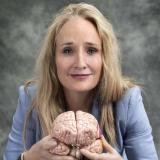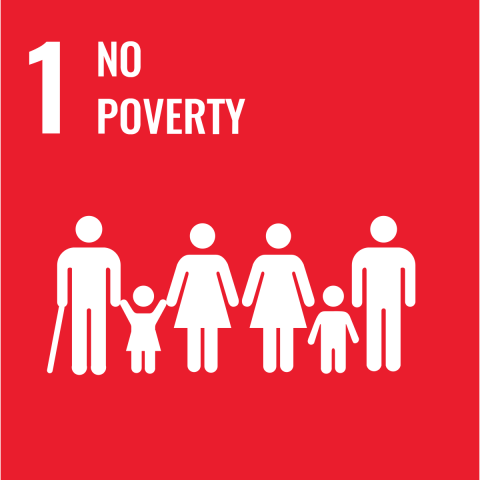Zero Poverty Lab: Stopping generational poverty
Solving poverty is a global task. Living in poverty damages people’s mental and physical health. Poverty stunts children's development, causes much suffering and stress, and costs society a lot of potential due to illness and loss. Even in the Netherlands, many people live in poverty. The Zero Poverty Lab aims to break the cycle of generational poverty by clarifying the effect of poverty on the (child’s) brain and investigate how we can help prevent and remedy these effects.
Poverty is a lack of money and a lack of participation, which is a fatal combination.
Ralf Embrechts, co-founder & ambassador Quiet500 Foundation
-

Margriet Sitskoorn
Professor of Clinical Neuropsychology
“With the Zero Poverty Lab, we want to be part of the solution. Our motto is ‘enriched brains, enriched lives, enriched world.’ Creating an environment in which people can develop is a common responsibility and good for all of us.” -

Marion van den Heuvel
Associate Professor of Developmental Neuropsychology“Poverty and hunger gets ‘under people's skin’ and is passed on to the next generation. I want to show that conclusively. Because of this, the next generation starts off at a disadvantage. Not only because their cradle is in the wrong place but also because their body and brain are developed differently even before they are born. This pattern can be broken, and we must do that.”
The effect of poverty on the brain
Living in poverty has direct, negative effects on brain development. In particular, brain parts that control executive functions are affected. Executive functions are skills such as planning, organizing, long-term concentration, and goal-directed persistence. These skills are crucial for breaking the negative cycle of poverty. The good news is that executive functions can be improved. This can be done with solutions that appeal to neuroplasticity or the brain's ability to develop. The Zero Poverty Lab is conducting research from various research disciplines on how this ability can contribute to solving the poverty issue.
In August 2022, the Netherlands Bureau for Economic Policy Analysis (Centraal Planbureau (CPB)) estimated that 1.3 million Dutch people live in poverty. In 2020, there were 221,000 children growing up in poverty. The general expectation is that these numbers will rise. The Zero Poverty Lab's research provides knowledge and solutions. We offer these outcomes to policymakers, aid organizations, and people living in poverty. This helps them to develop solutions, make impactful long-term choices to break the cycle of generational poverty, and thus end poverty permanently. With the Zero Poverty Lab, we want to be part of the solution: bringing about a better quality of life for more people and building a healthy and fair society.
Stopping generational poverty
The mission of the Zero Poverty lab is to stop generational poverty, so that all 170,000 children born each year in our country can develop to their full potential. In collaboration with the Zero Hunger Lab, we want to use scientific research to realize that very social impact, in terms of poverty reduction, food security, and participation in our society once again. Its research leads to concrete recommendations and methods for improving living conditions for people living in poverty and with hunger.
'Poverty and hunger gets under people’s skin and is passed on to the next generation.'
Marion van den Heuvel, Zero Poverty Lab researcher
How to reduce poverty in the world?
First of all; how to reduce poverty in the Netherlands? Through multidisciplinary research, the Zero Poverty Lab aims to offer impactful recommendations, insights, and tools to reduce poverty and hunger in the world. We do this, as Tim 'S Jongers recommends in his book Insulting Broccoli, together with the experts. That way, truly workable solutions emerge, and decisions are not made without involving people. We do it together with and for people living in poverty: these are the experts by experience. We share the final recommendations with policymakers at central and decentralized governments, the United Nations, NGOs, businesses, and socially vulnerable groups.
The multidisciplinary research focuses on the following themes, among others:
- Change through insight: visualizing the effects of poverty using AI (Artificial Intelligence). The goal of this research is to gather knowledge about the complex interplay between poverty, cognitive functioning, and the underlying brain networks in adults. With this knowledge, we aim to develop a dashboard to improve communication, understanding, and action among stakeholders.
- Childhood prevention: using AI to develop predictive neural network models. What causes poverty stress? We are gathering knowledge about the link between poverty, cognitive functioning, and the underlying brain networks in children. Thus, we want to enable early targeted solutions to prevent the negative effects of poverty.
- Improve executive functions to stop generational poverty: Executive functions of the brain control action and behavior; they help set and achieve goals and are related to success in the broad sense. Creating conditions in which executive skills can improve creates greater equity of opportunity. This is how the cycle of generational poverty is broken.
The Zero Poverty Lab is part of Tilburg University’s Broad Prosperity Program.
Watch this video From impoverished to enriched brains about our project in which digital sciences are used to lay a foundation for effective interventions and policies aimed at breaking the poverty cycle.
Sustainable Development Goal 1: No Poverty
Globally, combating poverty is a major task. Unfortunately, due to the COVID-19 pandemic, the poverty rate has risen sharply, whereas a downward trend had begun since 2015. In 2020, 9.2% of the world's population lived in poverty. This is exacerbated by rising inflation and the effects of the war in Ukraine.
If current trends continue, 575 million people will still be living in extreme poverty and only one-third of countries will have halved their national poverty levels by 2030. Action and investment to enhance economic opportunities, improve education and extend social protection to all, particularly the most excluded, is crucial to delivering on the central commitment to end poverty and leave no one behind. (Source: The Sustainable Development Goals report 2023)

Countries made and recorded agreements at an international level in the 17 UN Sustainable Development Goals (SDGs). The first goal, SDG-1, is No Poverty, which includes the following commitments:
- By 2030: no more global extreme poverty (people living on less than $2.15 a day).
- By 2030: reduce by at least half the number of men, women, and children living in poverty according to the national definition.
- By 2030: increase the resilience of the poor and vulnerable and reduce their exposure and vulnerability to economic, social, and environmental shocks and (climate) disasters.
The Zero Poverty Lab aligns with these international goals; we aim to sustainably reduce the number of people living in poverty, and we aim to increase the resilience of Dutch people living in poverty. We do this with research that leads to concrete recommendations and tools for improving the living conditions of people living in poverty and with hunger.
